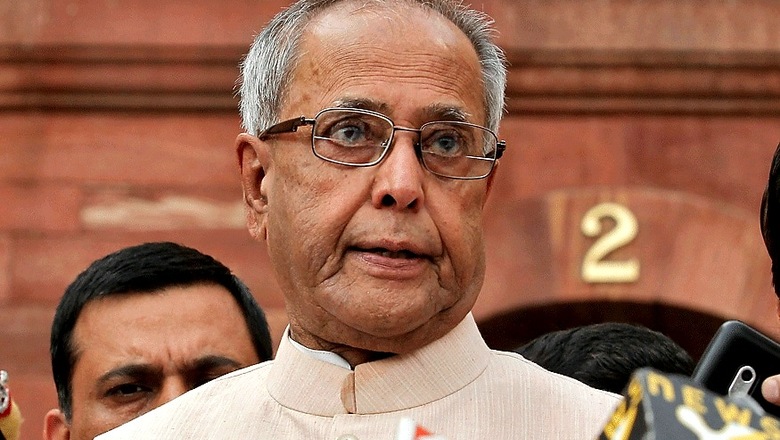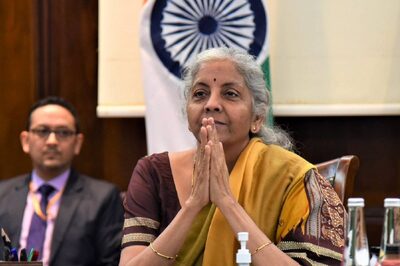
views
New Delhi: President Pranab Mukherjee on Wednesday cautioned that a scenario opposite to job creation can spell disaster in the country.
Addressing a conference of heads of educational institutions, he said job creation figures were the lowest in past seven years and jobs creation is a priority.
Citing incidents of student unrest in institutions, the President emphasised upon a harmonious and peaceful environment for students to pursue higher studies and asked government departments concerned to facilitate academic leaders.
Mukherjee said country's institutions must become magnets for talent by shifting from "brain drain" to "brain rain".
"In India, we have enough talent. With the largest population of the young, we are poised to leverage a low dependency ratio. But that depends on the productivity of the population in the working age bracket. If there are enough jobs in the country, there will be content, refinement and perfection. An opposite scenario can spell disaster. The restlessness and frustration of youth manifest in unrest and upheaval. Let us not allow such a situation to appear on our horizon. We must turn our evolving demographic configuration into strength. For that, adequate job creation is a priority. The job creation figures of 1.35 lakh in 2015, which is the lowest in seven years, are not encouraging," the President said.
He said with machines fast replacing men, there is a need to have a look at a paradigm shift.
"From 'brain drain', we must shift to abundance of 'brain rain', as many successful Indian professionals working abroad are keen to come back, excited by the opportunities unfolding in a changing India. With the adequate thrust on internationalisation of our institutions, we can develop 'brain networks'," Mukherjee said, addressing the second visitor's conference at Rashtrapati Bhavan.
The President said educational institutions must have a harmonious and peaceful environment.
"There have been incidences of student unrest in our institutions in recent past. Our campuses must have a harmonious and peaceful environment for students to pursue higher studies and research. Vice-chancellors and directors must deal with any unpleasant situation with sagacity. They must take help of all well-wishers including inspired teachers, who by the dint of their wisdom, conviction and conduct, can inspire confidence among students and have a calming influence. The concerned administrative ministries must also facilitate the academic leaders." he said.
Mukherjee also launched the national student startup policy which aims to create one lakh technology based student start-ups and a million employment opportunities within the next 10 years.
The President said the global rankings of our higher educational institutions belie our economic prowess.
He said to attract bright students with limited means, a support base comprising options like deferred and variable fees and income-contingent loans will be necessary.
Mukherjee said the challenge to attain global standards for our higher education system is two-fold.
"We need our established institutions to graduate into world-class centres of learning. At the same time, we need new institutions to take-off successfully, overcoming the nascent-stage hurdles. Some of the new institutions have been set up in remote areas of the country. They hold great promise to spur the development of their regions. They can be the bridge to build local capacity for teaching and learning. Necessary assistance, both financial and administrative, must be at their disposal to see that these institutions start functioning at full capacity," he said.
The President said the road to becoming world-class institutions is through the trinity of talent, resources and management.
The conference was attended by Prakash Javadekar, Union Minister for Human Resource Development, Ashok Gajapathi Raju Pusapati, Union Minister of Civil Aviation, Mahendra Nath Pandey, Minister of State for Human Resource Development, Secretary to the President, Omita Paul and Prof Anil D Sahasrabudhe, Chairman, All India Council for Technical Education besides heads of academic institutions.



















Comments
0 comment